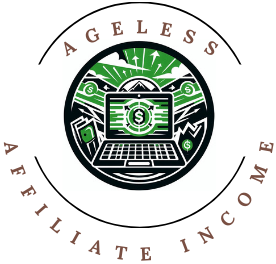So, You Want to Start a Small Business Online

I’m going to level with you. Starting a business after retirement isn’t simply about keeping busy—it’s about redefining your life with purpose and passion. You’ll discover the joys and challenges of turning your post-retirement phase into an exciting business venture.
What’s great about being an entrepreneur at this stage is the wealth of experience you bring to the table. This isn’t just about leveraging decades of work know-how; it’s also about mixing in life’s wisdom to create a business with a solid foundation.
I think readiness for this kind of venture is more about mindset than age. Do you have the curiosity to learn new things? Are you ready to take risks, albeit calculated ones? These qualities are paramount in shaping your journey as an entrepreneur after retirement.
You are not alone on this journey. Many retirees have successfully transitioned to entrepreneurship, drawing inspiration and practical insights from their stories.
Imagine turning a hobby or lifelong passion into a profitable venture. This is our next focus, wherein we will explore ideation and planning to help you find your niche—a crucial step in launching your small business post-retirement.
Ideation and Planning: Finding Your Niche
Now, let’s talk about shaping your entrepreneurial vision. Finding your niche in the business world after retirement isn’t just about jumping on trends; it’s about combining your passion with practicality. You’ll find out about identifying unique business ideas that are viable and aligned with your interests and expertise.
Putting a finger on what you’re good at and what you enjoy is a crucial first step. Make a list—yes, go old-school with pen and paper if you have to—of your hobbies, past work experiences, and skills. This isn’t just about making money; it’s also about fulfillment in your retirement years.
Next, your idea needs to meet market demand. This is where you roll up your sleeves and dive into some research. Look for gaps in the market and emerging trends that interest you. Consider how your skills could address these needs. Choose something that resonates with you but also has a customer base.
I’m here to help you craft a solid business plan. This document will serve as your roadmap and a persuasive tool for potential investors or partners. It should detail your business idea, market research, operations, financial projections, and marketing strategy. It’s your blueprint for success, tailored to your stage in life as a retiree.
After hammering out the details of your plan, I recommend getting some feedback. Connect with other entrepreneurs—ideally, retirees who’ve started their ventures. Suggestions and recommendations from peers can be invaluable as you finalize your niche and prepare to launch your business.
Setting Up Your Small Business: Checklist for Retirees

Starting a small business after retirement is about the vision and the groundwork. You need to set a firm foundation to ensure your business thrives. Let’s begin with choosing the right business structure. Many prefer a sole proprietorship because of its simplicity; however, there is increased risk. A limited liability company (LLC) could offer you protection without the hassle of corporate formalities. Consult with legal experts to determine the best option for your situation.
Now, let’s talk finances. It’s paramount to estimate startup costs accurately and explore funding options. Might you tap into savings, or are you considering a small business loan? You’ll need a realistic budget that considers both expected and unexpected expenses.
Handling the legal aspects is not as daunting as it seems. You should understand the necessary licenses and permits for your business type. Be proactive in seeking legal advice to navigate these waters; it’s a smart investment to ensure compliance and avoid any legal snafus down the road.
Don’t fret about getting every decision perfect at the outset. You can always adjust your approach down the road. Business is about adaptation, and for most retirees, their life experiences have been a long series of adaptations—a huge asset. Choose what resonates with you and aligns with your business goals and personal values.
With your business framework established, you’ll be ready to share your vision with the world. That’s where marketing steps in. And I’m not just talking about flyers and local newspapers; though they have their place, the digital age has unlocked an array of marketing opportunities you’d be wise to leverage.
Marketing Strategies for the Modern Retiree Entrepreneur
Marketing isn’t just about selling products; it’s about connecting with your audience and building relationships. As a retired entrepreneur, you bring a wealth of life experience that can be invaluable in this process.
Start with what you have: your personal and professional networks. These networks are not to be underestimated. Leveraging these contacts can kickstart your business through word-of-mouth recommendations. Invoke the ‘six degrees of separation’ principle; you’re closer to your next customer than you think.
In the online world, there is great power in digital marketing and social media. There’s this misconception that these are playgrounds for the young. Not true. More and more seniors are online and engaged. Platforms like Facebook, LinkedIn, and Instagram can connect you with a broader audience. You can always get a helping hand if technology seems daunting. Consider it an investment, not a hurdle.
Don’t disregard traditional marketing, either. I’m talking about local newspapers, flyers, community bulletin boards, and local radio spots. These methods have stood the test of time for a reason. They can be highly effective, especially if your business addresses local needs or your community has a significant retiree population.
Remember, marketing is an evolving process. Through that process, you’ll learn what works and what doesn’t for your niche. And here’s a tip: Always request feedback. It’s golden and will guide you in refining your strategies.
Maintaining Work-Life Balance in Your Golden Years
Although it’s not always easy, it is possible to maintain a fulfilling work-life balance even as a busy retiree entrepreneur. However, it does require some preplanning. Setting realistic goals and boundaries for personal time is crucial. Choose something that resonates with you, whether dedicating mornings to business and afternoons to relaxation or perhaps working three full days and taking a four-day weekend.
You’re going to find out about harnessing technology for greater efficiency. From scheduling tools to automated customer service, there’s a lot of opportunity in tech to save time and energy.

I’m here to help you remember that prioritizing your health and wellness while running a business isn’t a luxury; it’s a necessity. Incorporate regular exercise, healthy eating, and downtime into your daily routine.
A lot happens quickly when you start a small business, but don’t worry too much about rigid schedules. You can always adjust your approach down the road.
Remember, your first attempt at balancing business and leisure doesn’t need to be your last. Just don’t focus too much on perfection. Instead, find a rhythm that balances your business and personal lives
